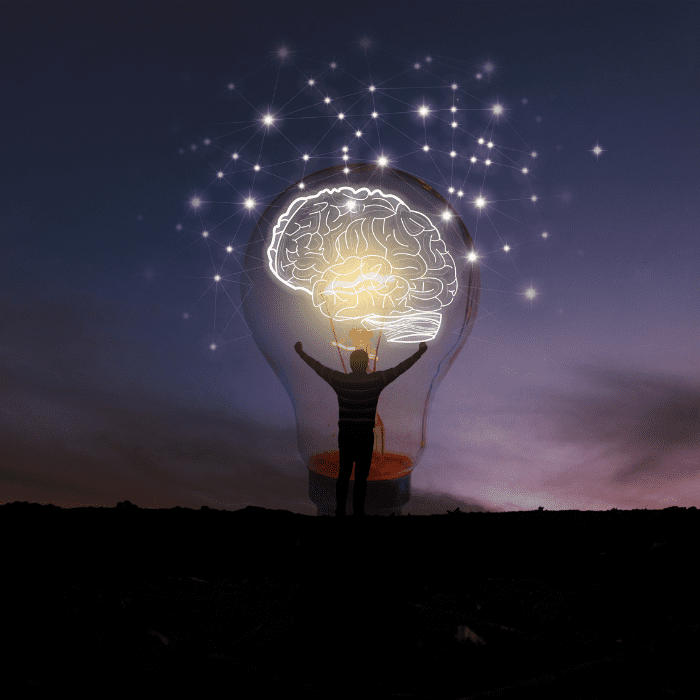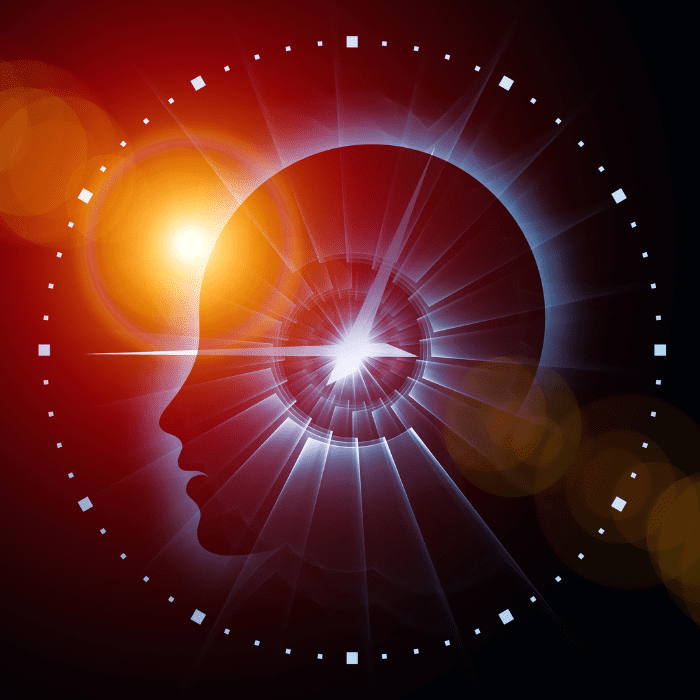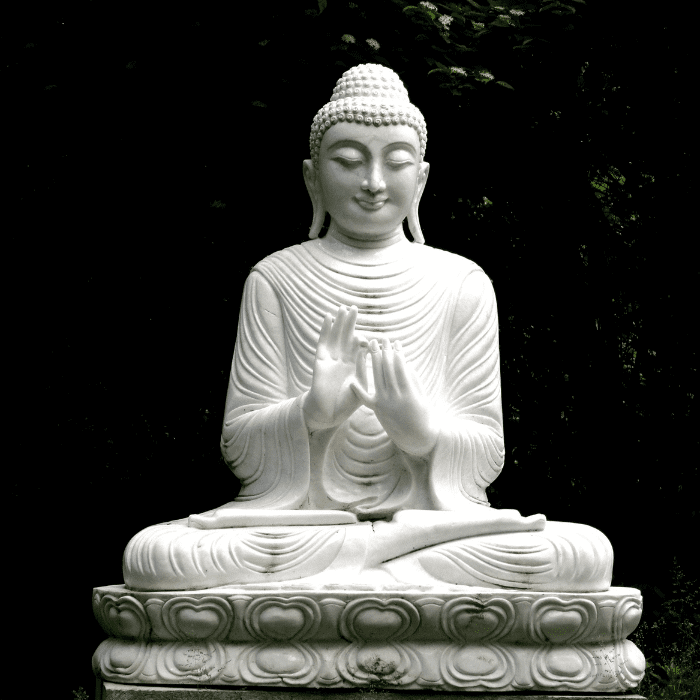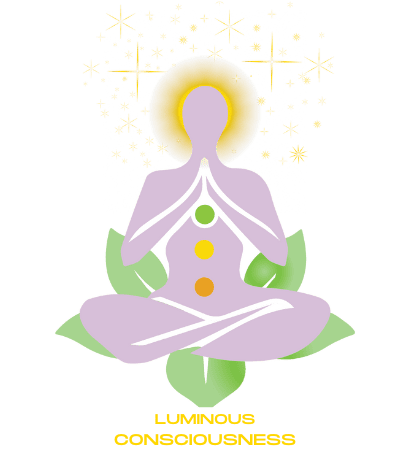Here’s a little transparency: Our website contains affiliate links. This means we may receive a small commission if you click and make a purchase. Don’t worry—there’s no extra cost to you. It’s a simple way you can support our mission to bring you quality content. Learn more at the Affiliate Disclosure page.

Exploring the Interaction Between Consciousness and Wisdom
Now, let’s explore how consciousness and wisdom, two seemingly distinct concepts, dance together in the grand scheme of personal growth. You might think of consciousness as the stage and wisdom as the performance that unfolds on it.
Let’s make it simple – Consciousness is the state of awareness, whereas wisdom is the ability to apply knowledge, insight, and good judgment. Consciousness involves an elevated understanding of oneself, one’s role, and the world. In contrast, wisdom encompasses discerning what is true or correct and making sound decisions based on that understanding. While consciousness requires contemplation to deepen awareness, wisdom must be cultivated through experience and reflection.
Scientific research suggests that consciousness and wisdom are deeply interconnected. Consciousness, the awareness of our thoughts, feelings, and surroundings, provides the cognitive framework for developing and exercising wisdom. Wisdom, characterized by deep understanding, sound judgment, and the ability to apply knowledge effectively, often relies on the level of consciousness an individual possesses.
The Role of the Subconscious Mind
Intriguing case studies and research suggest that our subconscious mind could play a far more significant role in wisdom than we once thought. For example, studies in psychology and neuroscience indicate that much of our decision-making and problem-solving processes occur below the level of conscious awareness. The subconscious mind integrates vast amounts of information and experiences, which can manifest as intuitive wisdom, often guiding us without our conscious realization.

Mindfulness and Personal Development
In personal development, mindfulness practices that heighten conscious awareness are often heralded as avenues for cultivating wisdom. Through meditation, reflection, and deliberate practice, one can sharpen one’s ability to discern wisely, impacting everything from our relationships to the choices we make in our careers. Neuroscientific studies have shown that mindfulness meditation can enhance brain regions associated with self-regulation, emotional intelligence, and ethical decision-making—all critical components of wisdom.
Educational Systems and Leadership Models
Educational systems and leadership models now endorse this synergy of consciousness and wisdom. They recognize that conscious awareness of one’s values, emotions, and experiences, combined with the prudent judgment that defines wisdom, sets the stage for effective decision-making and ethical leadership. This is supported by research in educational psychology, which highlights the importance of metacognitive strategies—thinking about one’s thinking—in fostering consciousness and wisdom.
Religious and Cultural Perspectives
Buddhism: Emphasizes mindfulness and meditation as paths to achieving heightened consciousness and wisdom, leading to enlightenment. Scientific studies on Buddhist meditation practices have shown improved emotional regulation and cognitive flexibility associated with wisdom.

Christianity: Wisdom is seen as a gift from God, involving the application of knowledge with a moral and ethical dimension guided by faith. Psychological research on religious practices suggests regular engagement in faith-based activities can enhance moral reasoning and ethical behavior.
Indigenous Cultures: Many indigenous traditions view wisdom as profoundly connected to nature and the community’s collective knowledge, passed down through generations. Anthropological studies have documented how indigenous knowledge systems contribute to sustainable living and community cohesion, reflecting deep wisdom.
Understanding Consciousness
Consciousness is the lens through which we experience reality, process thoughts, and perceive emotions. It’s our subjective experience of the world and ourselves. There are myriad theories about consciousness stemming from different fields, such as philosophy, psychology, neuroscience, and even artificial intelligence research. Philosophers have pondered consciousness since the days of Aristotle, while scientists today use cutting-edge technology to study brain activity linked to conscious experience.
Understanding consciousness isn’t just an academic pursuit; it’s a crucial tool that can significantly impact our lives. It influences our ethical decisions, how we design artificial intelligence, and even how we approach healthcare. By grasping the workings of consciousness, we can make strides in treating disorders and enhancing our daily lives.
Scientific Perspectives on Consciousness
Neuroscience: Consciousness arises from complex interactions within the brain’s neural networks, involving regions such as the prefrontal cortex, thalamus, and the default mode network.
Cognitive Science: Sensory information is processed by respective sensory cortices and integrated to create a coherent experience. Attention mechanisms in the parietal and frontal lobes focus on specific stimuli and filter out irrelevant information.
Artificial Intelligence: AI research explores the possibility of replicating conscious experiences through advanced algorithms and neural networks.
Mental Health Implications
Maladaptive thought patterns and emotional responses in mental health disorders reflect altered neural activity. Therapeutic interventions like CBT and mindfulness aim to retrain neural pathways for healthier thought and behavior patterns.
Wisdom Unveiled: More Than Just Knowledge
Next, let’s delve into what constitutes wisdom. It’s a term that often gets tossed around with others like intelligence and knowledge, but make no mistake—it’s a distinct beast altogether. Wisdom isn’t just about what you know but how you apply it in various aspects of life.
The core components of wisdom are emotional regulation, reflection, and moral judgment. Emotional regulation involves managing feelings to allow for thoughtful responses rather than impulsive reactions. Reflection is about deep diving into your experiences, learning from them, and gaining insights that were not obvious at first glance. Moral judgment then brings in the ethical dimension, guiding you to make choices that consider the greater good, not just personal gain.

Scientific Perspectives on Wisdom
Cognitive and Emotional Balance: Wisdom requires effective self-regulation involving brain regions like the anterior cingulate and prefrontal cortex. Emotional stability and resilience are vital components of wisdom, supported by the brain’s ability to manage and regulate emotions.
Long-Term Development: Wisdom develops through experiences, reflection, and learning over time. It is associated with improved executive functions, mediated by the prefrontal cortex, and the ability to apply knowledge in practical, ethical, and compassionate ways.
Scientific Studies: Studies have shown that meditation can enhance brain plasticity, reduce stress, and improve focus and attention, contributing to the development of wisdom. MRI and EEG studies demonstrate changes in brain regions associated with emotional regulation and self-awareness through regular meditation.
Applied Insights: Integrating Consciousness and Wisdom for a Better Life
Integrating consciousness—our awareness of the world and ourselves—with wisdom and our ability to make sound judgments can lead to a richer, more ethical, and more fulfilling experience. Conscious choices and wise actions are two sides of the same coin regarding ethical living. While consciousness allows you to be aware of the consequences of your actions, wisdom gives you the foresight to choose the ones that will have the most positive impact.
In today’s digital age, where distractions are a constant and information overload is the norm, the importance of being both conscious and wise cannot be overstated. With technology shaping many of our interactions and decisions, staying present and making thoughtful choices remains crucial. Reducing screen time or engaging with content that challenges your mind and spirit can enhance consciousness and wisdom.
Finally, consider adopting mindful practices such as meditation or reflection to enhance your consciousness and cultivate wisdom. These can help you attune to your thoughts and feelings while honing your ability to act wisely. It’s a journey worth embarking on, and it promises to give you the insight to navigate life’s complexities with greater harmony and purpose.
Let’s be Conscious to elevate knowledge into Wisdom.
References:
On Consciousness:
- Chalmers, D. J. (1995). Facing Up to the Problem of Consciousness. Journal of Consciousness Studies, 2(3), 200-219.
- Crick, F., & Koch, C. (1990). Toward a Neurobiological Theory of Consciousness. Seminars in the Neurosciences, 2(4), 263-275.
- Tononi, G., & Koch, C. (2015). Consciousness: Here, There and Everywhere. Philosophical Transactions of the Royal Society B: Biological Sciences, 370(1686), 20140167.
On Wisdom:
- Ardelt, M. (2003). Measuring Wisdom: A Guide for Educators and Researchers. Education and the Aging Process, 33(2), 5-28.
- Staudinger, U. M., & Glück, J. (2011). Wisdom and Life Span Development. In R. J. Sternberg & J. Jordan (Eds.), The Cambridge Handbook of Wisdom (pp. 342-367). Cambridge University Press.
- Grossmann, I. (2017). Wisdom and its Relation to Well-being and Social Relationships. Current Directions in Psychological Science, 26(4), 302-307.
Interaction Between Consciousness and Wisdom:
- Kihlstrom, J. F. (2005). Consciousness and the Brain: The Case of the Split Brain. Annual Review of Psychology, 56, 21-47.
- Proust, J. (2013). Consciousness and the Brain: Deciphering How the Brain Codes Our Thoughts. Journal of Philosophy, 110(4), 169-200.
- Davidson, R. J., & Begley, S. (2012). The Emotional Life of Your Brain. Hudson Street Press.
Cultural and Religious Perspectives:
- Dalai Lama, & Cutler, H. (1998). The Art of Happiness. Riverhead Books.
- Hanh, T. N. (1999). The Heart of the Buddha’s Teaching. Broadway Books.
- Kirmayer, L. J., & Valaskakis, G. G. (2009). Healing Traditions: The Mental Health of Aboriginal Peoples in Canada. University of British Columbia Press.
Applications in Daily Life:
- Brown, K. W., & Ryan, R. M. (2003). The Benefits of Being Present: Mindfulness and Its Role in Psychological Well-being. Journal of Personality and Social Psychology, 84(4), 822-848.
- Goleman, D. (1995). Emotional Intelligence: Why It Can Matter More Than IQ. Bantam Books.
- Kabat-Zinn, J. (1990). Whole Catastrophe Living: Using the Wisdom of Your Body and Mind to Face Stress, Pain, and Illness. Delacorte Press.

I’m intrigued by how mindfulness can enhance our awareness and foster wisdom. The idea that our subconscious influences decision-making is also compelling. I’d be interested to see more practical ways to integrate these concepts into daily life to make wiser choices. This has inspired me to focus more on mindfulness and applying my knowledge thoughtfully.
Hey Elica,
I’m glad you found the discussion on mindfulness and its connection to wisdom compelling. Mindfulness indeed plays a crucial role in enhancing our awareness and promoting understanding.
One practical way to integrate these concepts into your daily life is to start with simple mindfulness exercises, such as focused breathing or body scanning, which can be easily incorporated into your daily routine.
By consciously practicing mindfulness, you can cultivate greater self-awareness and clarity of thought, leading to wiser decision-making. Additionally, taking moments throughout the day to pause, reflect, and approach situations calmly and thoughtfully can also contribute to making more considered and mindful choices.
I’m glad you’re inspired to focus more on mindfulness and apply your knowledge thoughtfully. It’s an empowering journey, and I wish you the best in pursuing wisdom through mindfulness.
Cheers,
Eric.